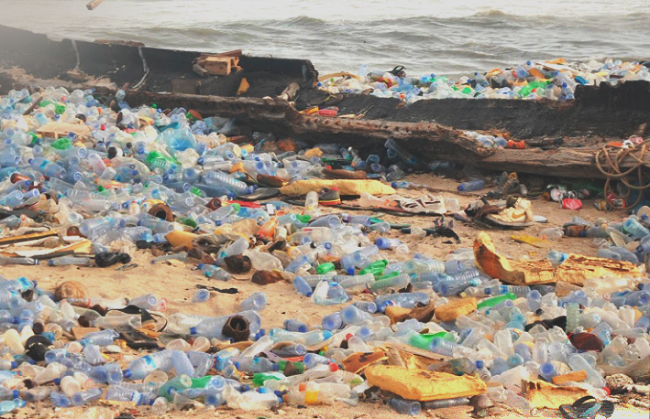
EPA seeks legal backing to protect marine resources
The Environmental Protection Agency (EPA) is to develop regulation to protect the coral reef, sighted in Ghana’s territorial waters.
The regulation, which is expected to be ready by December this year, is to identify and delineate specific areas within the sea that will be protected to ensure that it is not damaged as a result of human activities.
The Director in charge of Natural Resources at the EPA, Mr Carl Fiati, in an interview said although Ghana did not have a marine protected area, the coral reef was one area that had been identified.
“We currently do not have any marine protected area. Efforts are being made to identify areas that need to be protected and one of them is the coral reef;” that is about a 100-kilometer into the sea and it goes down about 400meters. If they are not protected, trawlers will destroy them,” he said.
Subsequently, the EPA said, was developing a regulation to clearly define areas that would be protected, and would also spell out sanctions to be applied to those who flout the regulation.
“The regulation will define sensitive habitats that certain activities will be prohibited and offenders will be severely punished. The fishermen and others will be consulted for all to agree that these areas must be protected and after, that stretch will be restricted and no fishing or trawling will take place,” he said.
According to him, fishes tended to spawn and grow in these protected areas, adding that, “then you can be sure that in the future there will be more fishes. As at now, we have none, so everyone is fishing everywhere.”
Pressure on marine resources
The Minister of Environment, Science Technology and Innovation, Mr Mahama Ayariga explained that the demand of increasing commerce and industrialisation have imposed great pressure on the seas and their resources.
“The demand for increase commerce and industrialisation as well as urbanization has led to intensification of fishing, shipping, hydrocarbon activities, ports development, and conversion of sensitive marine and coastal habitats,” he said.
The upsurge of these activities, he said, had contributed largely to the increasing degradation of the marine environment through pollution, depletion of living marine resources, coastal erosion among other things that impacts climate change.
“Indeed some of these activities are conducted illegally. Aggregate loses of revenue from illegal activities in the African Maritime domain amount to hundreds of billions of US dollars. Indeed, illegal, unregulated and unreported fishing is said to cost the continent US$20 billion per annum,” he added.
Conserving the ocean
The Executive Director of the EPA, Mr Daniel S. Amlalo, in a speech read on his behalf at a symposium to mark World Oceans Day in Accra, stressd the need for the country to collaborate with international agencies to ensure that seas were healthy.
Citing the severe influx of the brown seaweed known as Sargassum, he said, this was a testimony that activities in other parts of the world could impact on the lives of others.
“The influx of the floating algae into Ghana’s waters has resulted in the apparent introduction of two new species of Sargassum, which had previously not been reported. The problem of Sargassum is a testimony that we in this region are connected by the ocean to people in other regions,” he said.
He added that “We therefore cannot work alone to conserve the oceans. We must forge international collaboration to do this. We therefore extend the hand of partnership to all our collaborators to join in efforts to make our seas healthy.”

